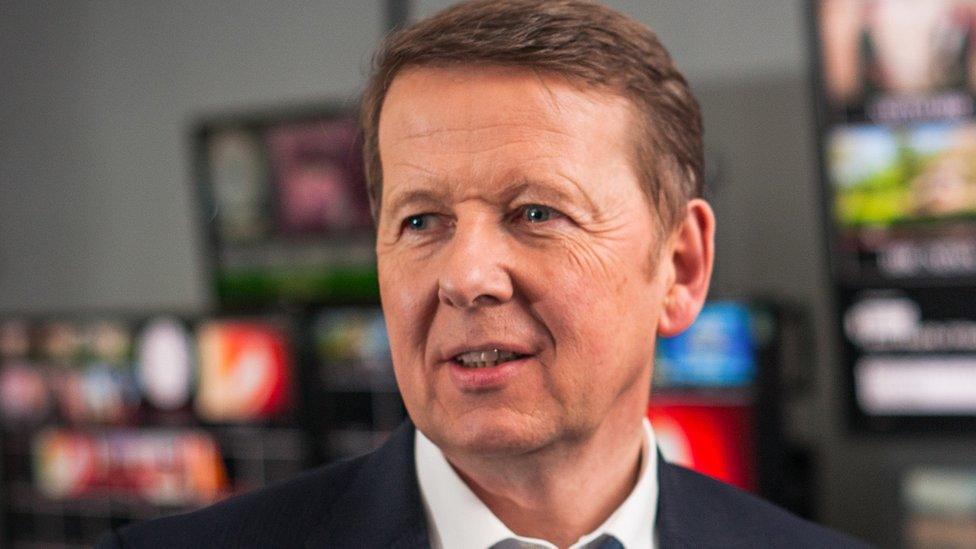Cambridge graduates create app to boost student safety
- Published
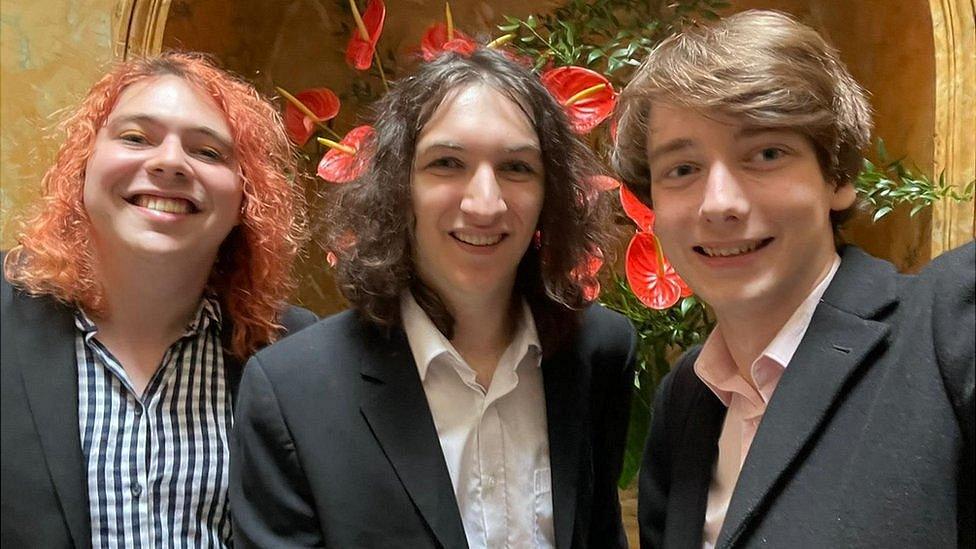
Morgan Saville, Geno Racklin Asher and Gabriel Brown created the app to focus on improving campus safety
Students said they felt safer with a new app that lets them discreetly send emergency messages on nights out.
The app, Flare, was created by three University of Cambridge graduates, with the aim of improving campus safety.
Co-founder Gabriel Brown said he hoped it would offer students "an extra layer of confidence" in situations where they felt uncomfortable or unsafe.
"Ultimately it's the kind of app you want but never want to have to use," said user Ruby Cline, 20.
Flare - Stay Safe, which launched last week, allows users to send pre-written emergency messages to trusted contacts over text, either through the app or by tapping a notification on their phone's locked home screen.
Mr Brown, 21, who created the free app with fellow King's College alumni Morgan Saville and Geno Racklin Asher, said they hoped it offered an outlet for students who did not feel comfortable calling the emergency services.
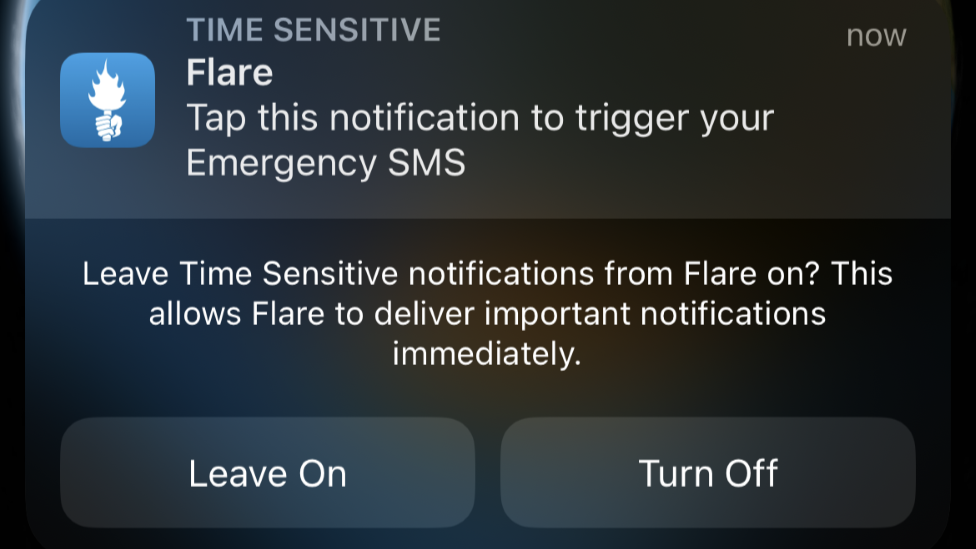
Users can tap a permanent notification on their phone's lock screen to send an emergency text
Mr Brown said there were situations in his past where he wished the app had existed, including walking home from a night out in Cambridge and being heckled by cyclists for being gay.
He said: "I remember feeling incredibly uncomfortable… I remember them cycling around me, I remember getting my phone out but my fingers were shaking and putting in 999, but thinking this probably isn't life-threatening.
"A lot of people might feel unsafe but not want to bother the emergency services and that is where the app is designed to offer another layer of protection, by allowing people to notify loved ones or trusted friends they may need help or don't feel safe."
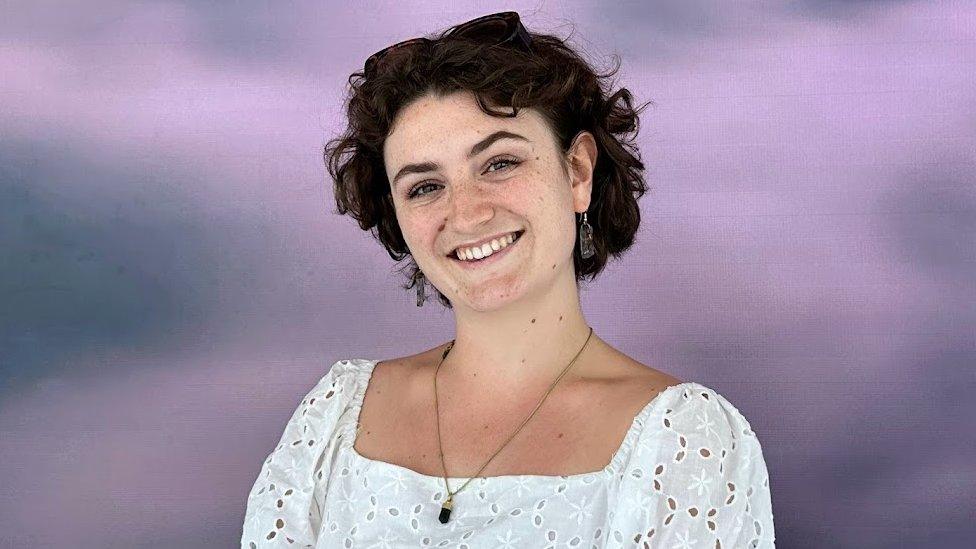
Ruby Cline said at university you can "disappear for days and no-one sees you or says anything"
Ruby Cline, 20, a student at Cambridge, is one of the app's users.
She said: "Ultimately it's the kind of app you want but never want to have to use."
With university being the first time many young people have lived away from home, she said: "It's the first time you could disappear for days and no-one sees you or says anything.
"I've felt safer walking home at night since because I can send that message," she said.
She also said she "would feel a lot better" if her friends and housemates had the app when going on blind dates or nights out.
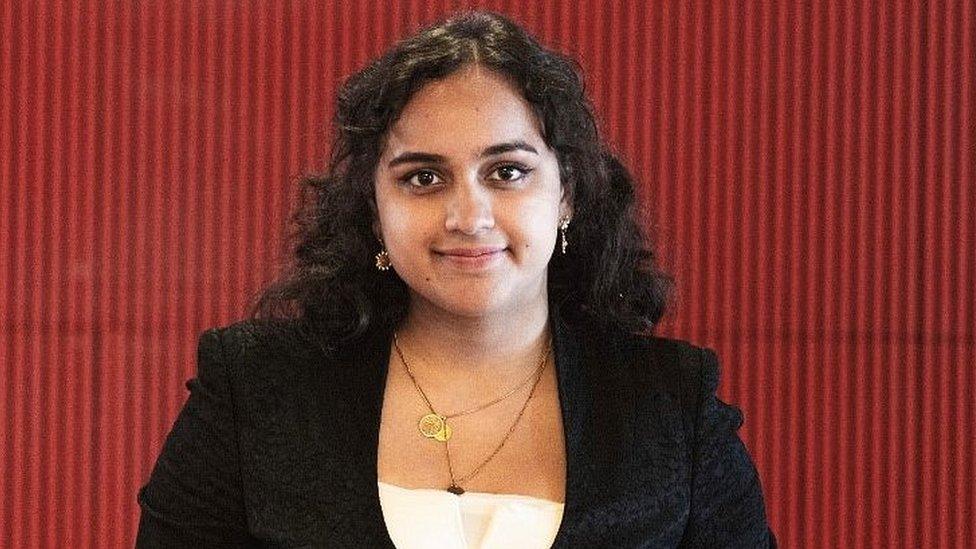
Naabil Khan said she had been at protests where they quickly became overwhelming
For Naabil Khan, a third-year medical student at the University of Exeter, the app was something she felt would provide a "safety net" for students on nights out, but also when attending protests.
She said: "I remember when I went to protests in London they do become very chaotic. Not necessarily dangerous, but you can feel overwhelmed."
Spiking
The app was being used by 15 students unions and groups across England, who have been asked to form part of an advisory board for the app going forward, Mr Brown said.
Naomi Vince, 20, is president of the Trinity College Students Union at the University of Cambridge, which has decided to promote the app to students as part of a safety campaign.
She said: "It was hearing experiences from other people about what they have gone through themselves when spiked and the helplessness of it all - it's almost like a little safety net.
"Hopefully nothing will happen, but at least if you're worried you can do something about it rather than feel helpless.
"When in that state [after spiking], you're not making the most rational decisions, but this is a pre-planned message to a trusted friend that's easy to send."
She was hopeful that by advising on the app going forward improvements could be made, including location sharing - which the founders said they were working on.

Follow East of England news on Facebook, external, Instagram, external and X, external. Got a story? Email eastofenglandnews@bbc.co.uk, external or WhatsApp 0800 169 1830
- Published27 June 2023
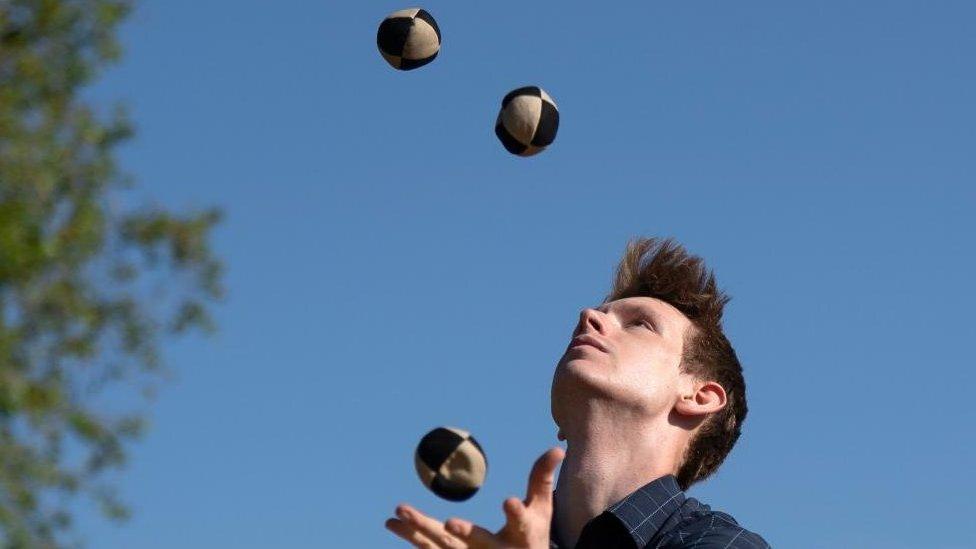
- Published23 February 2023
